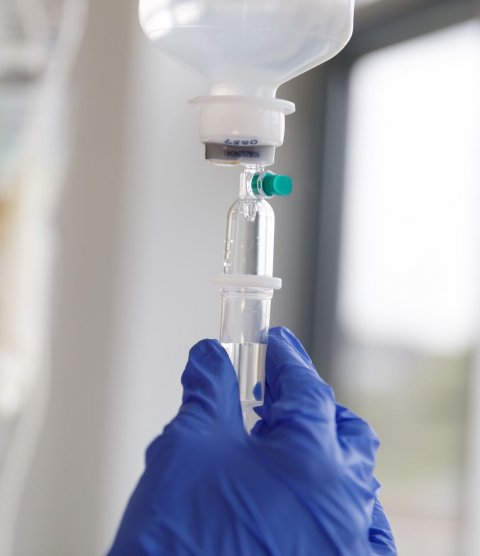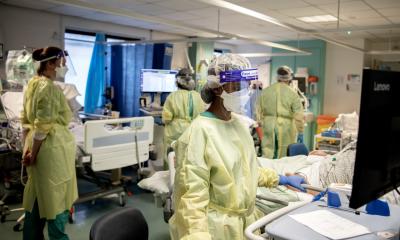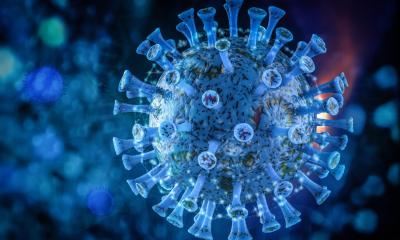News • Dealing with the disease
Leading European cancer centers share their corona knowledge
Cancer patients are particularly at risk for infections because of their disease and its treatment.
Due to the rapid spread of the coronavirus in Europe, cancer centers within a short period were faced with the challenge of minimizing the risk of infection for these patients while at the same time not compromising the provision of the necessary treatments. Seven leading European cancer centers that are part of the Cancer Core Europe (CCE) network, including the German Cancer Research Center (DKFZ) together with the National Center for Tumor Diseases (NCT) Heidelberg, published their experiences and measures taken in the course of the corona pandemic.

Copyright: NCT Heidelberg/Philip Benjamin
Within a few weeks, European cancer centers had to adapt and reorganise both patient care and their research activities due to the spread of COVID-19. To protect cancer patients, treatments had to be individually adapted to the risk of infection and personal contacts had to be reduced. At the same time, the care of all medically necessary examinations and therapies should be impaired as little as possible. Ongoing clinical studies were reviewed and individually evaluated to determine whether they could be continued. A number of measures were taken to maintain a high standard of care even under the bottlenecks that arose, for example for protective clothing, intensive care beds and infection tests.
The results will be incorporated into recommendations that cancer centres and hospitals can use to adapt their processes and make them more 'pandemic-proof'
Michael Baumann
Seven leading European cancer centers, including the DKFZ together with the NCT Heidelberg, have now published their experience in dealing with the COVID-19 pandemic in the journal Nature Medicine. All seven centers are part of the CCE network, which was established in 2014 to conduct joint research projects and clinical trials. The aim is to bring innovative cancer therapies into clinical application more quickly throughout Europe. "In view of the dynamic and multifaceted challenges of the pandemic, an intensive exchange of experience is of particular importance to ensure continuity of cancer care in the CCE centers. Any remaining uncertainties will be addressed in order to discuss both possible solutions and open research questions," explained Stefan Fröhling, Managing Director of the NCT Heidelberg and head of the Department of Translational Medical Oncology at the DKFZ.
"The results will be incorporated into recommendations that cancer centres and hospitals can use to adapt their processes and make them more 'pandemic-proof'. Cooperation with regional and national networks also plays an important role in this process in order to better manage the care of oncological patients," said Michael Baumann, Scientific Director of the DKFZ.
In order to ensure the continuous care of oncological patients during the COVID-19 pandemic, the centres mention the following aspects for medical institutions:
- Adaptation of clinical activities and structures to protect cancer patients from COVID-19 disease. This includes the adaptation of standard routines due to safety concerns.
- Continuous communication with patients and ensuring psychosocial care
- Qualified and trained personnel as well as sufficient capacity to test their own personnel for SARS-CoV-2
- Continuous evaluation of treatment capacities. Consideration of whether alternative, e.g. shorter treatment schedules or short-term postponements of certain treatments are indicated.
- Cooperation with regional and national partners to share the care of cancer patients
Source: National Center for Tumor Diseases Heidelberg (NCT)
22.04.2020





